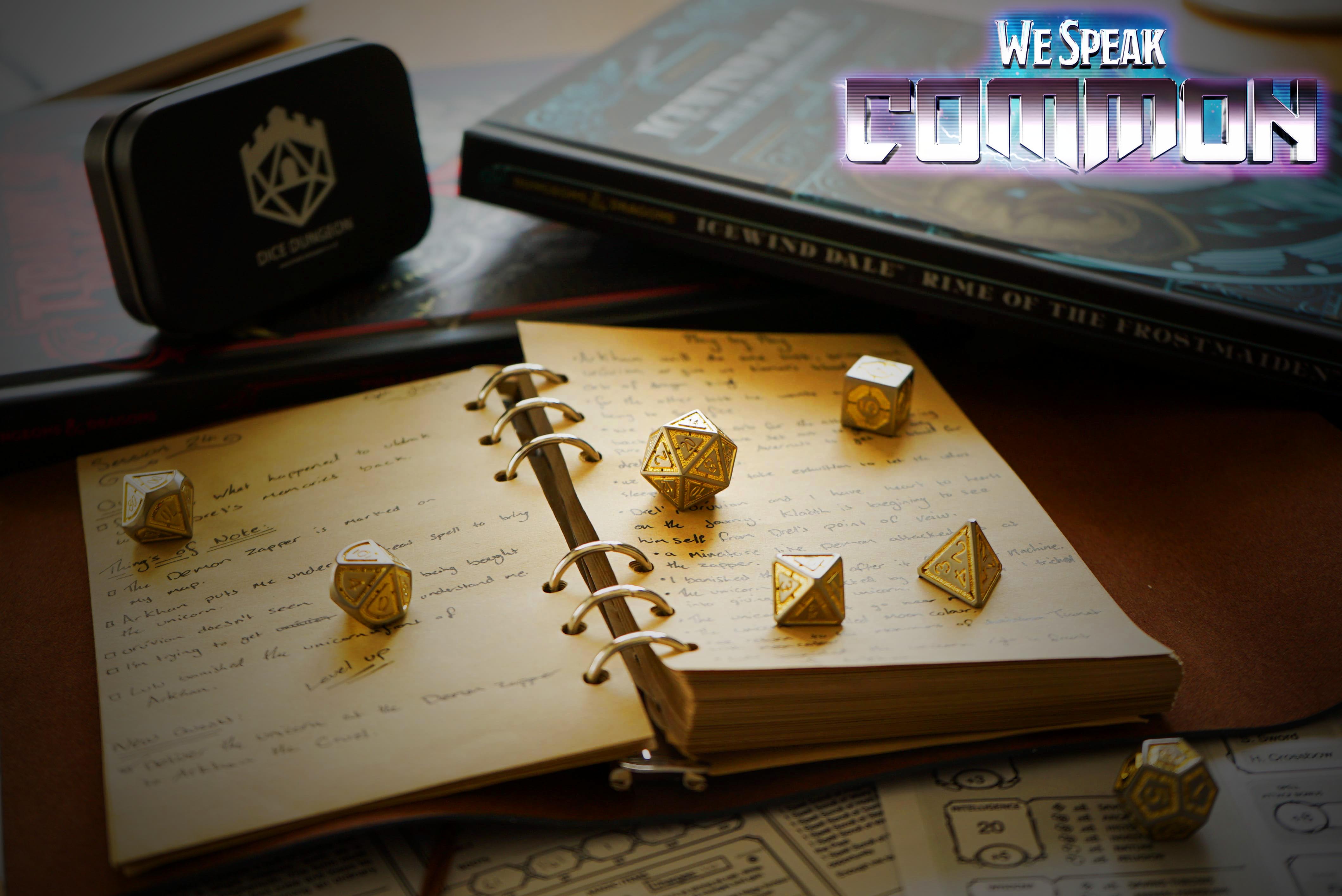It’s hard to deny it’s been a strange year, and most of our D&D adventures have been taken from the warm, lively and tactile table surrounded by friends, to the cold, buggy and digital hands of video calls. Now don’t get us wrong, there are some really great ways to play D&D online! Virtual table tops, real time animated maps and things like D&D beyond all make for an amazing experience. But, if you’re coming from a world of minis, flowing conversations and physical dice it can be daunting to recreate the magic online. We always say that playing any D&D is better than playing no D&D, so here are three things to think about when taking your game online.
A Simple Setup
Let’s start simple, at the very basics for taking your game online you’ll need a computer, microphone and whilst a camera is optional its purpose is twofold: giving your players visual as well as audio cues as to when someone has stopped talking. This can be massively helpful for combating the dreaded delay of online VOIP communications. consequently it also allows your players to see your animated gesticulations in all their glory! Discord is our VOIP platform of choice and we still roll physical dice and have our character sheets in hand, this adds a nice tactile feeling and instills trust in the group! Once you’re comfortable with your setup you can expand. Create a discord server with bots for rules and music, add maps to the group chats, transition to a virtual tabletop. The online world opens up over time, don’t feel bad for starting small!Theatre Of The Mind
Those virtual table tops are amazing, but they take time to learn and set up, and some even come with a paywall. If you’re moving to an online environment and want to get set up and ready to go quickly, use theatre of the mind. Originally coined in the radio world, Theatre of the mind is a term that indicates the collected ability, styles, tools and techniques that we use to conjure vivid imagery in our players minds. You’re doing this all the time as a DM, especially if you don’t play with minis or battle maps, but if you do and the idea of not having them is daunting, here are some tips:
- Be loose with distance. In D&D we use 5ft squares and 30ft base speeds, keep this in mind, but be loose about these placements. When you don’t have a map to pin down exact locations it becomes difficult to track them, instead be open to flexibility. When your Warlock asks if they are close enough to the goblin to get up and swing their blade, and you have them down as between 30 and 35 feet away, the answer is yes. There's no point in getting bogged down in the exact distances if there's no easy way to track them. It’s also very upsetting when you are an anticlimactic 5ft out of reach!
- Focus on intent and “What do you want to do?”. This is a key rule for D&D as a whole, but in theatre of the mind it’s doubly important. As players and DM’s we need to let go of planning out our turns based on placements and distances, and instead on the effect we want to have. “I want to cast fireball towards the back of the chamber so I don’t hit the party” “done”. Lean on the action economy as your structure, you’ve got 1 action, 1 bonus action and you can move - go!
- Get descriptive. Our D&D games are full of descriptors, but if you’re coming from a game with maps and mins it can be easy to let those do the describing for you. Each new npc, location and turn in combat is a chance to reaffirm the world the players are imagining. Describe how the blade cuts through the paladin’s shield, and the heat of the fireball as it erupts in front of the wizard. Bonus points if you’re players get into the swing of describing their actions in the world too!
Schedule Extra Time
If you’re moving from a regular gathering with friends to an online game, it might be helpful to have some extra time before you’re set to start playing. We found by having an extra half hour before the dice were rolled, we could still catch up and hang out as friends as if we were still round the table. It’s hard to have those little side chats you may normally have at the table through a single voice channel, so why not have them whilst the warlock reconnects his microphone for the 5th time before the session starts proper, audio is hard guys! This extra time is doubly important if you haven’t been able to see each other properly all year! If your game is starting at 4pm, get everyone on the call at 3:30, chat, laugh and have a good time. That's what D&D is all about really.Hopefully those quick tips make playing D&D online a little bit easier. If you already have an ace DM that’s got you set up online, why not treat them this christmas with a nice new set of dice?! Use the code “WeSpeakCommon” at checkout to get 10% off!
Ben Norris @benjfnorris

